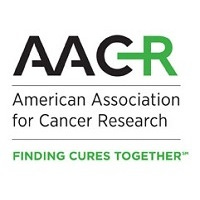AACR Brain Cancer Highlights
A tantalizing Phase 1 study of AZD-1390, some potential insights into poor CAR-T efficacy against solid tumors, and disappointing OS performance of oncology drugs granted Accelerated Approval
The 2024 American Association of Cancer Research (AACR) conference just concluded in San Diego. We monitored the news and tidal wave of messaging to our phones from the comfort of our homes, thus avoiding the inevitable flight delays and $10 really bad lattes. After >30 years of global business travel and in light of our GBM caregiver duties, time poverty is not a concept that appeals. Plus, the companies and investigators had pretty much already sent us the #Data and presentations in advance as long as we agreed to respect publication embargoes. Below are a few of the noteworthy highlights.
Note to MissionGBM readers: As a policy, we refrain from breathlessly reporting on early discovery and pre-clinical work because (i) there is a long way to go until clinical translation and regulatory approval and anything can happen (collectively, we have been involved with >30 oncology clinical trials); and (ii) if we had a dollar for every time that we or others “cured” cancer in mice, then we would be approaching the net worth of the average Google employee massage therapist.
Some Highlights
AZD-1390 Demonstrates Manageable Safety and Preliminary Efficacy Data in GBM Patients. AZD-1390 is a brain-penetrant ataxia telangiectasia mutant (ATM) kinase inhibitor. The compound works by inhibiting ATM-dependent signaling and repair of double-stranded DNA breaks induced by DNA-damaging irradiation or chemotherapeutic medicines, thus potentially enhancing the anti-cancer activity of the treatments. At AACR 2024, a group of investigators reported results from a Phase 1, multi-center, open label clinical trial of AZD-1390 in rGBM (Arm A) and uMGMT ndGBM (Arm C) patients in combination with intensity-modulated RT (IMRT) (see here, here and NCT03423628). The Bottom Line was (i) that AZD-1390 + IMRT yielded a manageable safety profile in GBM patients; and (ii) an mOS of 12.7 months was recorded for the 21 patients who received tolerated doses of AZD-1390 + IMRT. AZD-1390 is an example of a therapeutic agent that is designed to mitigate the native DNA Damage Response mechanisms in cells that work to reverse the action of certain oncology therapies. DDR approaches are a rational focus of brain cancer therapeutics development initiatives (see here).
Potential Insight into the Reasons for Poor Efficacy of CAR-T Approaches in Solid Tumors. As we recently highlighted in a MissionGBM post about CAR-T approaches to treating GBM (see here), the excitement and Hi-Tech wizardy surrounding CAR-T agents for cancer have not yet been able to translate to solid tumors regardless of location in the body. At AACR 2024, Poseida reported early results from a Phase 1 study of heavily pre-treated relapsed/refractory multiple myeloma patients that appeared to offer a few insights into methods for increasing the ORR with CAR-T agents. In addition, the company detailed a study that compared pre-conditioning lymphodepletion (LD) regimens between multiple myeloma patients (blood cancer) and solid tumor patients who received CAR-T therapy. The results appear to show that solid tumor patients may not be receiving adequate enough LD to optimize CAR-T PK and ORR. Still a loooooooooong way to go before CAR-T regimens are truly attractive in solid tumor patients, but a journey of 1000 miles begins with some single steps (see here).
Oncology Therapies Introduced Under FDA Accelerated Approval Often Fail to Provide Objective Benefit. A major study of the 5-year objective performance of new oncology therapies approved under the FDA’s Accelerated Approval program showed that many are not able to produce evidence of clinical benefit when subjected to a confirmatory trial (see here and here). Ugh! So you say that you want to be a BioPharma executive or investor? Perhaps, a safer choice would be to pursue a career as a crash test dummy.


